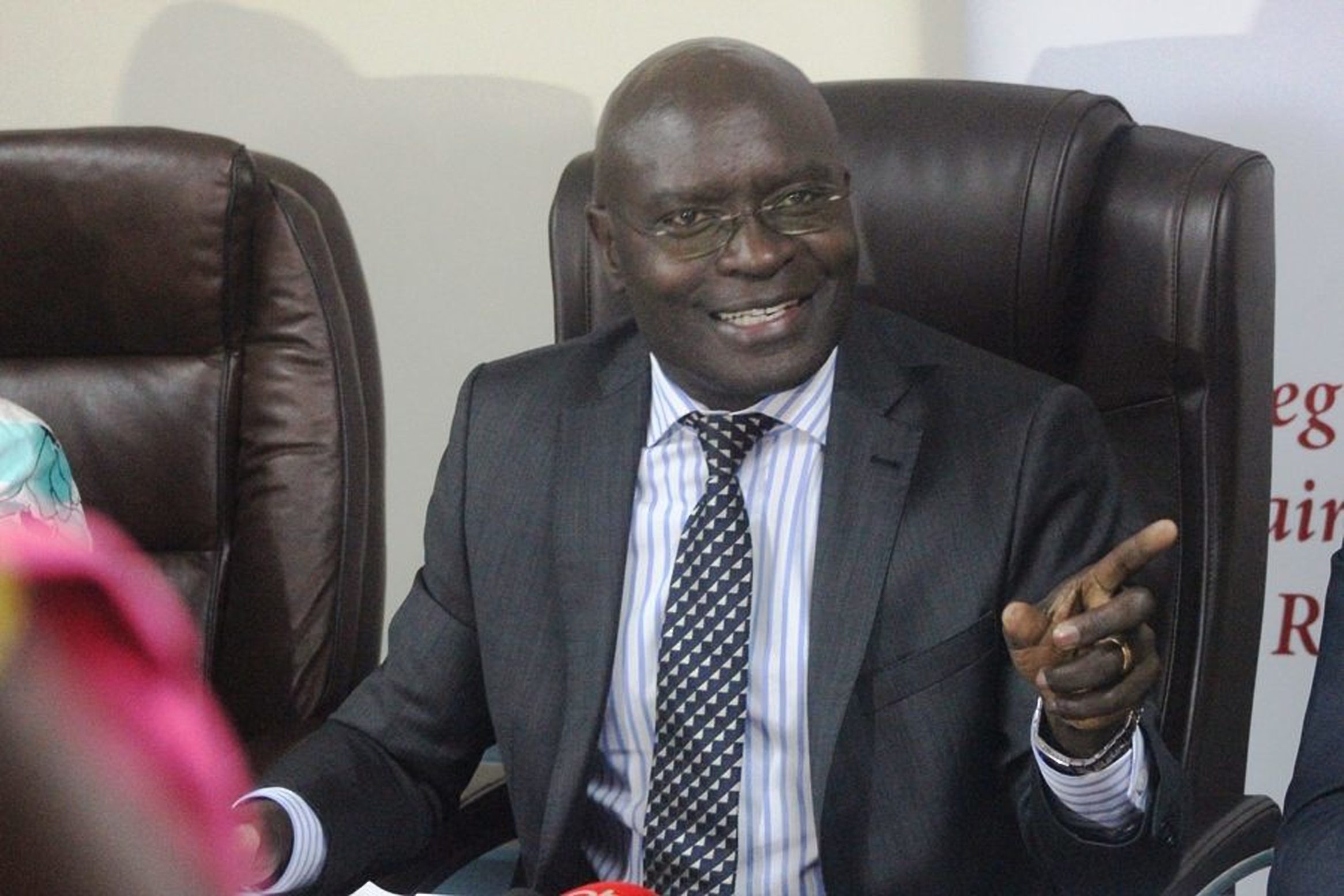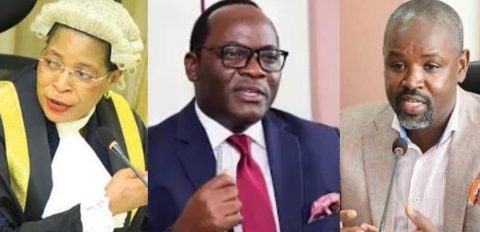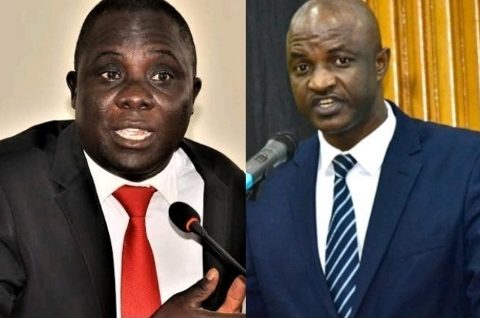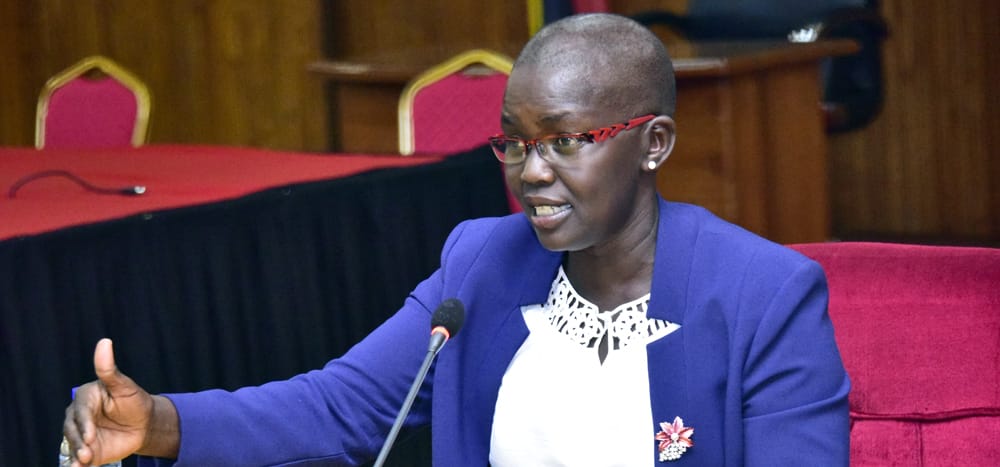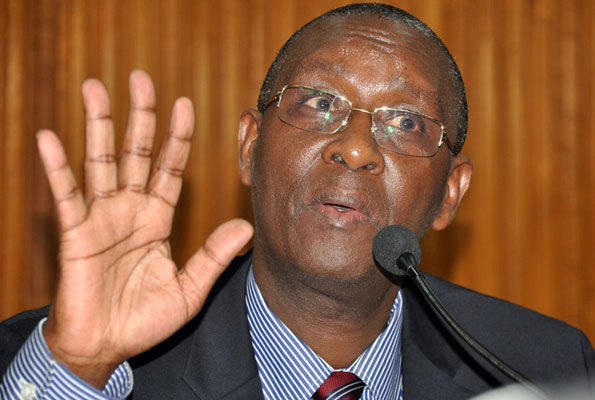The Auditor General has raised concerns over financial mismanagement in the Electoral Commission, the Directorate of Ethics and Integrity, and 14 other government agencies, leading to their receipt of qualified audit opinions for the year 2024.
This revelation was made by James Bantu, Acting Assistant Auditor General – Audit, during a meeting with Parliament’s Accountability Committees on January 31, 2025. The report comes amid ongoing investigations into top Electoral Commission officials, who are currently under suspension.
Bantu identified several local governments affected by financial discrepancies, including Ntoroko, Kalungu, Mubende, Manafwa, Kibaale, Busia, Butaleja, Ngora, Kapchorwa, and Moroto. Among ministries, departments, and agencies (MDAs), he singled out the Electoral Commission, the Directorate of Ethics and Integrity, the Uganda Road Fund, and the Presidential Initiative on Bananas.
The Auditor General, Edward Akol, disclosed that the Electoral Commission transferred UGX 4.32 billion to Wakiso, Kampala, Mukono, and Mpigi districts for activities that should have been managed by its headquarters. However, these funds remain unaccounted for. He also noted that the Commission has outstanding domestic arrears of UGX 10.49 billion, a slight improvement from UGX 11.97 billion in the previous year.
During the meeting, Kasilo County MP Elijah Okupa pressed for clarity on agencies that have consistently received qualified audit opinions. He also questioned whether any entities had received adverse or disclaimer opinions, demanding accountability for persistent financial mismanagement.
Tororo District Woman MP Sarah Opendi raised concerns over the independence of the audit process, arguing that some agencies with glaring financial irregularities had been given unqualified opinions. “How do we rule out corruption within the Auditor General’s office? Can we trust that these reports are free from external influence?” she asked.
Okupa echoed these concerns, highlighting cases where whistleblowers had later exposed financial mismanagement in institutions previously given clean audit reports. “When such revelations emerge, the public rightly asks: What did the Auditor General do? What did Parliament do?” he said.
Opendi further criticized the Auditor General for not conducting value-for-money audits on Parliament and the Judiciary, despite growing public concerns over corruption and misuse of funds in these institutions.
“You’ve conducted value-for-money audits in 10 sectors, yet Parliament and the Judiciary were left out. Don’t you think it’s time to audit Parliament, especially with the ongoing debate about whether we need 520 MPs? Your mandate is clear you should not avoid this,” she asserted.
She also questioned whether Parliament’s exclusion from the audit process was due to undue influence. “Are you avoiding an audit of Parliament because we are your bosses?” Opendi asked.
Her remarks follow increased public scrutiny of Parliament’s leadership, particularly regarding allegations of bribery and nepotism in recruitment. In 2024, these concerns culminated in youth-led protests, demanding Speaker Anita Among’s resignation, and a petition by Lwemiyaga County MP Theodore Ssekikubo calling for the removal of four Parliamentary Commissioners.
In response, Auditor General Akol acknowledged gaps in the audit process and pledged to expand coverage in future assessments.
“We recognize the concerns raised today and see this as an opportunity for risk assessment. There are indeed areas we need to scrutinize further, and we will incorporate them into upcoming audits,” Akol assured MPs.
As the debate over accountability intensifies, lawmakers and the public will be watching closely to see whether the Auditor General follows through on his commitment to greater transparency and oversight.
![]()

